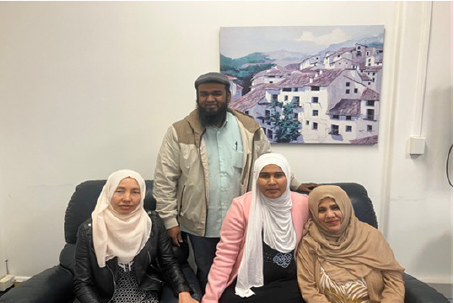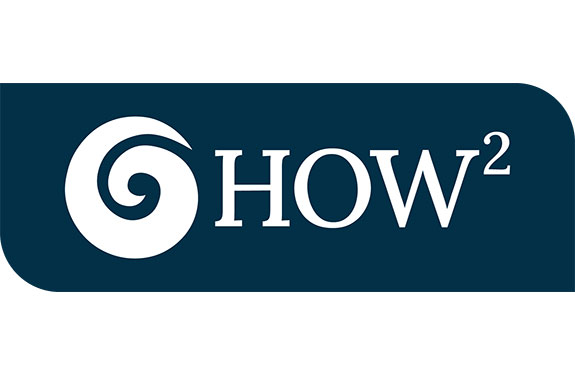Navigating the Systems | Refugee-Led Health Navigation in Palmerston North
The barriers faced by resettled refugee communities in accessing health care in New Zealand and other resettlement countries are well documented. These are due to differences in health care expectations, difficulties with transportation, communication barriers, and navigating health systems. Health navigation roles are known to be instrumental connectors between health care services and refugee background individuals. Organisations in several resettlement locations across New Zealand now has designated ‘refugee health navigators.’

From left to right: Kamila Chamin Ali, Mohd Shah Bin, Sajidah and Huda Alkaff
HOW² Te Ako Charitable Trust, based in Palmerston North, runs the Health Navigation Programme—New Zealand’s only refugee-led health service, supported by Te Whatu Ora. The programme is delivered by a dedicated team of four health navigators: Mohd Shah Bin, Sajidah Mohd Amin, Kamila Chaman Ali, and Shakila Hashim. All arrived in Aotearoa under the Quota Refugee Programme and bring lived experience from Afghan and Rohingya backgrounds, which reflect the largest refugee communities currently resettled in Palmerston North.
The team is led by Huda Alkaff, a former doctor with extensive experience in the Middle East. Since arriving in New Zealand over a decade ago, Huda has worked in migrant and refugee health promotion, and public health. Collectively, the team speaks multiple languages, enabling them to connect deeply with the communities they serve.
Their focus is on supporting newly arrived Quota Refugees to enrol with health services and navigate the New Zealand healthcare system. Referrals come from Refugee Health Services, managed by Te Whatu Ora – Counties Manukau at the Māngere Refugee Resettlement Centre. Support typically lasts up to a year, depending on individual health needs and complexity.
Health navigators assist with enrolment in GP, dental, and maternity services, and follow-up with specialists, hospitals, and NGOs. They often provide transport and accompany clients to appointments. In addition to direct support, the team educates health professionals about refugee trauma, cultural needs, and promotes health literacy among resettled communities.
Capacity building is a key part of their work. While some individuals adapt quickly, others require more time and support. Advocacy is also central to their role. One example shared was of a wheelchair user placed in a home without a ramp—highlighting ongoing systemic challenges.
A significant barrier remains access to interpreters. Funding constraints and service gaps mean health navigators often step in to interpret, despite role boundaries not always being clearly defined. Research shows that this dual role can be problematic, underscoring the need for formal interpreter training for health navigators.
